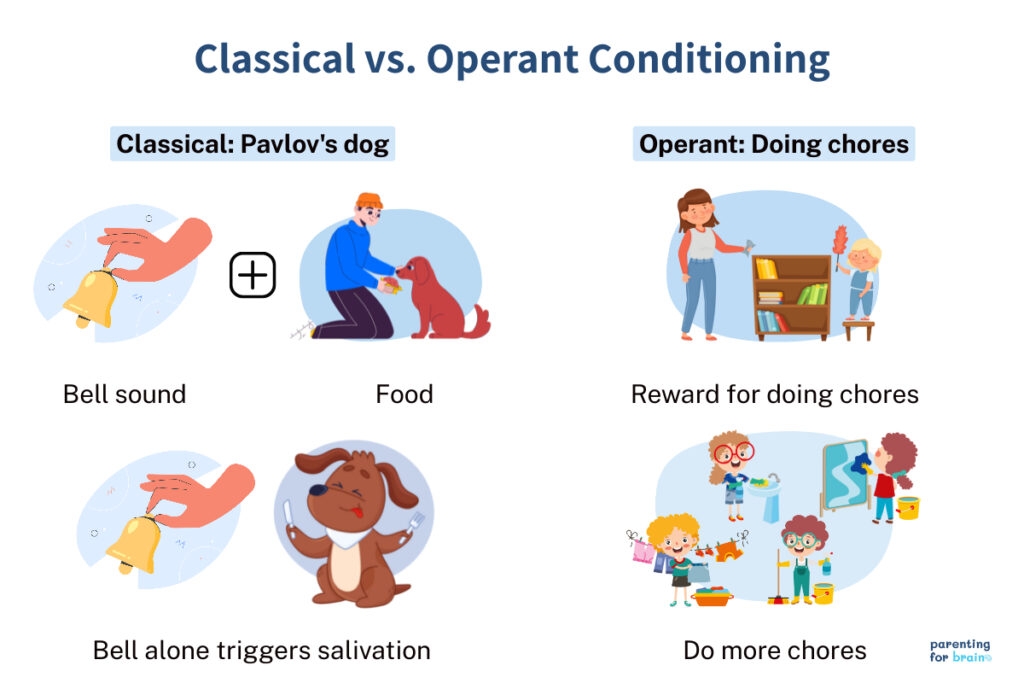Classical conditioning and operant conditioning are two fundamental concepts in psychology that explain how learning occurs in individuals. Both types of conditioning involve associations between stimuli and responses, but they differ in terms of the mechanisms involved and the outcomes they produce.
Classical conditioning, pioneered by Ivan Pavlov, involves the pairing of a neutral stimulus with an unconditioned stimulus to produce a conditioned response. This type of conditioning is passive, as the individual does not actively participate in the learning process. It focuses on involuntary reflexes and automatic responses.
On the other hand, operant conditioning, developed by B.F. Skinner, is a form of learning in which behavior is modified through reinforcement or punishment. In this type of conditioning, the individual’s behavior is instrumental in producing the consequences, which can be either positive or negative. It focuses on voluntary actions and the consequences that follow.
One key difference between classical conditioning and operant conditioning is the role of the individual in the learning process. In classical conditioning, the individual is a passive recipient of the conditioned stimulus, whereas in operant conditioning, the individual actively engages in behaviors that lead to reinforcements or punishments.
Another difference lies in the timing of the stimuli and responses. Classical conditioning involves the pairing of stimuli that occur before the response, while operant conditioning focuses on the consequences that follow the behavior. This distinction is crucial in understanding how learning takes place in different contexts.
Additionally, classical conditioning is more about triggering automatic responses based on associations, while operant conditioning is about shaping behavior through reinforcement or punishment. Both types of conditioning play a significant role in shaping behavior and learning in individuals, but they operate through distinct mechanisms and processes.
In conclusion, classical conditioning and operant conditioning are two essential concepts in psychology that explain how learning occurs through associations and consequences. While classical conditioning focuses on involuntary reflexes and passive learning, operant conditioning involves voluntary actions and active participation in shaping behavior. Understanding the differences between these two types of conditioning can provide valuable insights into the mechanisms of learning and behavior modification.
